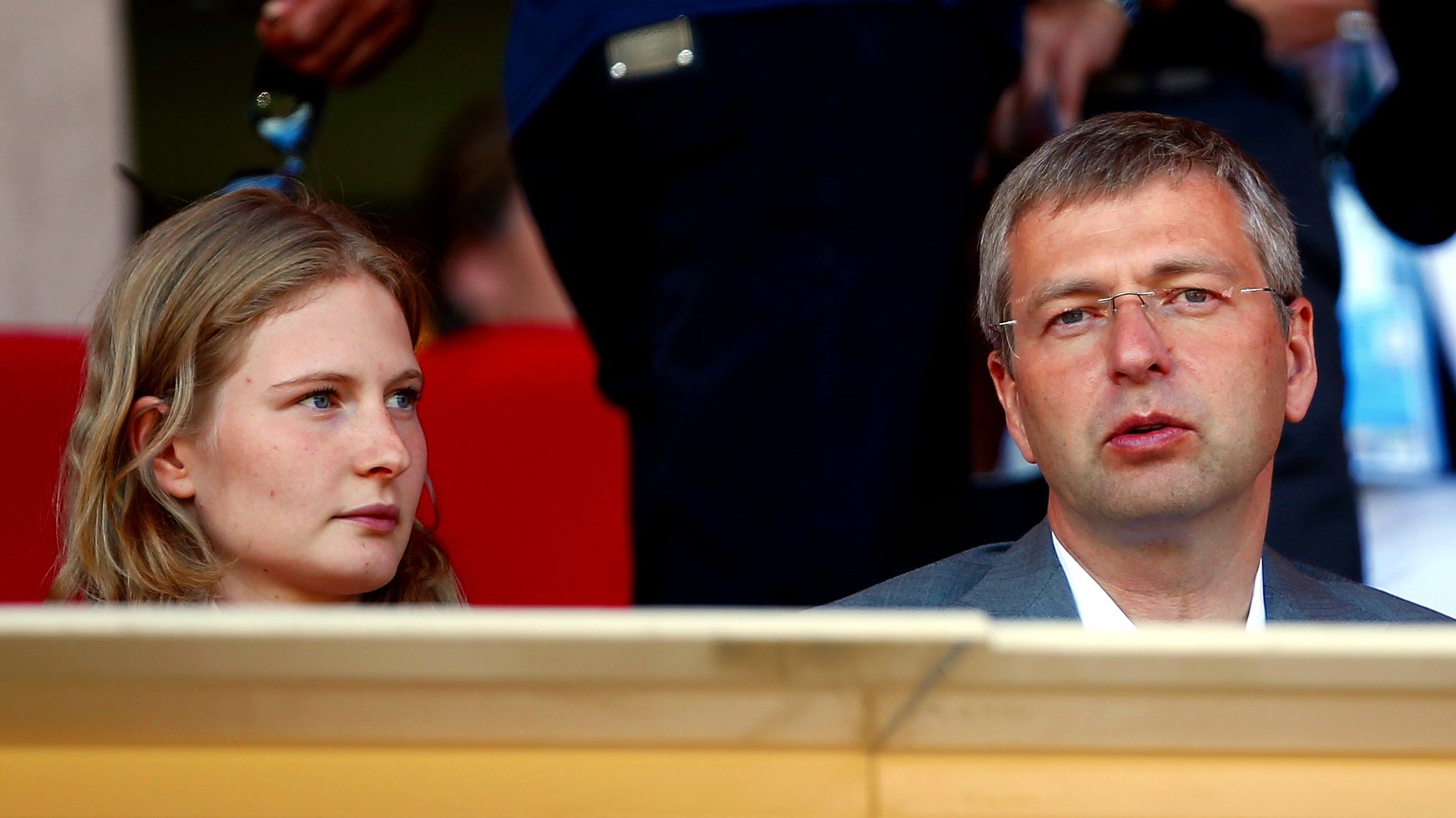It will take the world’s biggest divorce to learn who owns the most expensive real estate in the US
This piece has been updated.


This piece has been updated.
The trick of keeping money hidden is plausible deniability; and one of the simplest ways to maintain a safe distance from your stash is to put it in a trust. If the trust then buys something—say, an $88-million Manhattan penthouse—the trust’s lawyers don’t have to disclose who controls it. Short of enough evidence of wrongdoing for government investigators to gain a warrant and seize documents, there’s little anyone can do to show who really owns the purchased asset.
But what if someone intimately familiar with your fortune decided to start asking tricky questions in public? Then you’d be in trouble. And that’s exactly what has happened in the divorce of Dmitry Rybolovlev, an oligarch who made his $9.5-billion fortune building Uralkali, Russia’s fertilizer monopoly. His wife, Elena Rybolovleva, filed for divorce in Switzerland—where their family had moved after facing death threats in Russia—citing serial infidelity. A court there ordered Rybololev’s assets frozen while a settlement was arranged.
Nonetheless, he sold his interests in Uralkali (paywall) and in subsequent years, companies associated with his family bought the most expensive apartment in New York City from former Citi chairman Sandy Weill for $88 million; a Florida house owned by the tycoon and media gadfly Donald Trump for $95 million; and an estate in Hawaii from the actor Will Smith for $20 million. Trophy properties like these are increasingly popular ways to hide and preserve assets for the global wealthy.
In Rybololev’s case, each property was purchased by a limited liability corporation which was in turn owned by a trust. Who controls the trust is a contentious issue: Dmitry Rybololev insists that it is beyond his control and only benefits his children. But his wife says he funded the trust using money frozen by the Swiss courts to buy the properties, placing joint assets beyond her reach. She has filed suit in each of the three US states where these properties are located, arguing that they should not be sold without her receiving a fair share of the proceeds. In May, the Swiss court awarded Elena Rybolovleva a $4.5 billion divorce settlement—the largest in history.
(Update, 7/8: Rybolovlev’s attorney says that the Swiss judgement means ”the transfer of property to heirs through the trust structures, in particular to the couple’s children, is therefore immune from legal challenge and is assured”; however, he still intends to appeal the decision.) But the lawyers for Rybolovleva, perhaps unsurprisingly, disagree, and say the court’s decision increases the validity of her claim on her ex-husband’s assets.
But how will she get them? The challenge she faces is to prove that her ex-husband controls the trust, which is no easy task. Last year, David Newman, an attorney at Day Pitney who represents Rybolovleva, questioned Dmitry Rybolovlev in a contentious deposition about how the Florida property was purchased. Rybolovlev said that “yes, on my behalf, in my name, funds were allocated to acquire—there were funds allocated to a trust which made the acquisition” of Trump’s property. He also acknowledged that he continues to pay taxes and maintenance for the property, through the trust. But Rybolovlev refused to answer where the money that went into the trust came from, or what kind of communications exist between himself and the trust’s managers.
Newman’s hope is that the judges in these cases will allow further discovery so that he can access documents and depose the accountant who arranged the purchase of both the New York and Florida properties, to establish a clear link between Rybolovlev and the decisions to purchase the homes.
Meanwhile, Rybolovlev maintains that the Florida house was intended to support his older daughter, Ekaterina Rybolovleva, in her career as a professional equestrian, though she had never competed or owned horses in Florida before its purchase. Similarly, he has said the New York penthouse was intended to house this same daughter while she attended college, but she did not live in Manhattan or attend school there. No one appears to be living in any of the US properties. Last spring, Ekaterina Rybolovleva also purchased two Greek resort islands through the trust.